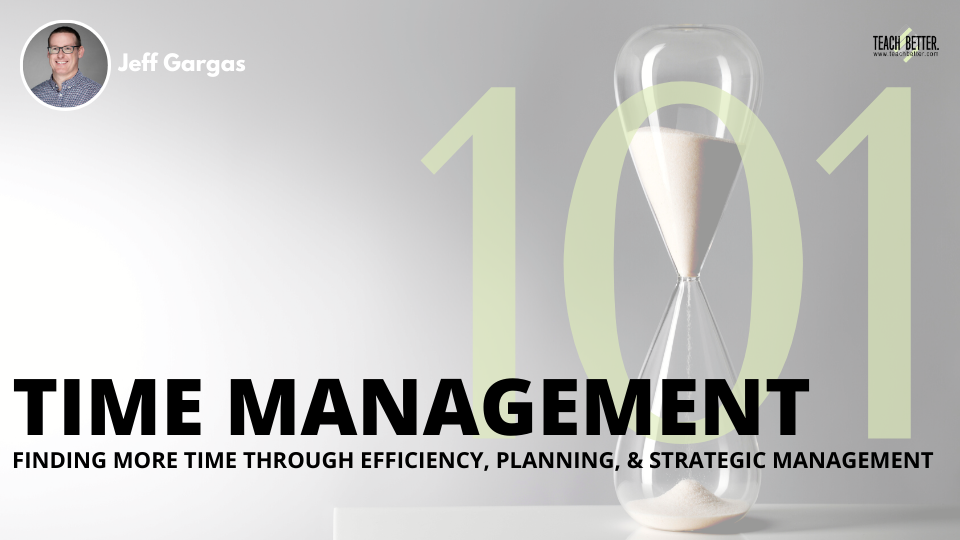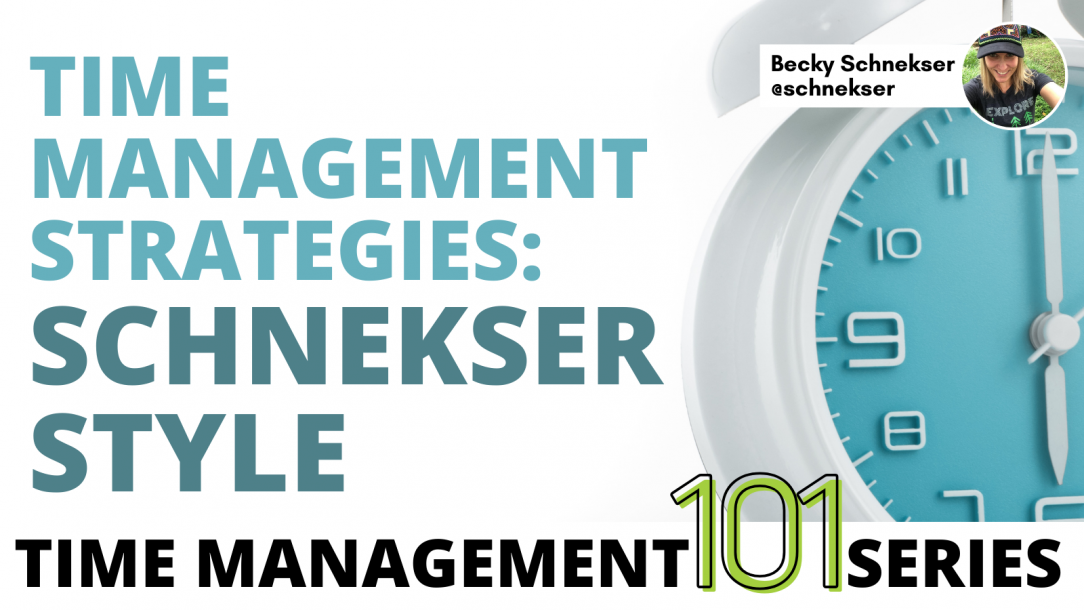TL;DR:
- Time management strategies include setting due dates a week in advance, knowing your usual schedule, and prioritizing necessary and positive mental health tasks.
- Becky Schnekser shares a look into her brain and the time management strategies she uses to prioritize her many responsibilities.
How do you do it all?
One of my best friends, Andrés, often asks me, “How do you do it all?” My answer is usually, “I have no idea, I just do.” Recently I have been reflecting on this conversation that happens literally every time Andrés and I talk.
“I have no idea…” My own words ring in my ear over and over again. They haunt my thoughts and permeate my consciousness. How can I not have a plan, yet do everything that I do?
I think to myself, now irritated that I am having this internal dialogue and seemingly losing my mind. I have never really thought about how I get all of the things done that I do; it just sort of happens. But there is a method to it, just as Shakespeare’s genius shines through his plays and sonnets and the same way works by Lee, Tarantino, Lucas, Scorsese, and Shyamalan dazzle and evoke reactions from audiences based on their clearly planned plotlines, theatrical choices, and character development.
If you are earning zero mental health points each day or even worse - for consecutive days, weeks, or (please no) months at a time - it's time to think about your to-do list, time management strategies, and task prioritization. Click To TweetWhat’s the big idea?
It turns out, there is a modus operandi at play. But for me, it is so integrated into my actions that I didn’t see it at first. There is no flashy planner that solves my problems or color scheme, app, or even device that allows me to plan, manage, and execute my to-do lists.
No, it’s a way of sorting based on chunks of time, but perhaps not as you have seen before. I am in no way going to insinuate that my thinking and planning are genius, rather it is a different strategy, one that works for me. It is quite possible it will work for no other human being, but while I have your attention for a few seconds, I will let you into my brain for a moment.
I am an educator, mother, wife, athlete, and expedition leader. I’m a team member, blogger, podcaster, author, social media-er…you get the point, right? I do a lot, just like you do. Our responsibilities may be slightly different, but the tie that bonds us is most likely our role in the world of education. That alone is a major time vacuum, that in itself, requires great time management strategies.
I make due dates at least three days (usually a week) prior to their true due date.
While we are at it, my clocks and wristwatch are all also at least five minutes fast. You might think it would allow for procrastination and shrugging off tasks. However, I always view these buffered dates and time as the true due dates and time for a few reasons.
This gives me a natural (is it natural if I have fabricated it though?) buffer for things that disrupt my schedule, which we all know will happen. An emergency phone call, car wreck on the commute, last-minute meeting with the principal or family at school, jam in the copier, muddy shoes from my outdoor classroom I have to now clean before entering the building—you get the picture.
I find that these two small shifts allow me to be more productive, not get upset too quickly with disruptions in my “plan” for the day, and cause me to be more efficient with the time I have allotted for tasks. Dare I admit to you that it allows me to complete more than I planned each day. As a type-A personality who enjoys crossing off to-do lists, that makes my heart happy.
I think about tasks on my to-do list as chunks of time.
Nothing is less than 30 minutes, no task. For most tasks, I “see” them as one-hour chunks of time. Therefore, every item on my to-do list has a mental time chunk that I place like a shape in the game of Tetris into my daily schedule. This is cross-referenced with due dates and priority orders which I will present a little later.
I know that on Mondays, I have about an hour of time I know for sure I can use for to-do list tasks. Tuesdays though, they are the mega bundle of time. I know I have at least three hours of time I can fill with to-do list tasks. I plan my to-do list chunks of time accordingly.
Know your “usual” schedule.
In thinking of my to-do list as chunks of time, you saw that I generally know when I have chunks of time. My schedule can be incredibly irregular, just like I imagine yours is or can be as well. You need to know or have easy access to your “usual” schedule, whether that is a paper calendar, app on your phone, or chip implanted in your skin—have some sort of a system.
I use a paper planner with large(ish) month views while I focus my work in months at a time. To best coordinate—with my husband mostly—I also use the Google calendar on my phone. Through all of my commitments, I have learned to not verbally commit to anything without physically opening the Google app or my paper planner. I cannot tell you how many times this has bitten me you know where.
Yes, I prioritize.
So this is probably something you have heard many times. You need to know what is most important to you personally and professionally and plot or rank those tasks accordingly.
Sometimes, money comes in to play here, right? Am I getting paid for this task? Is it a life necessity? How much is this task worth in mental health points?
If you are getting paid for it, it is necessary for life, and it gives you a bunch of mental health points, dude…that should be #1 on your to-do list. Whatever your system of priorities, use that to plug in your tasks.
Mental Health Points
Yes, I just made this up in the last section, right there on the spot. Mental health points are earned when a task gives you pleasure. The more points, the more pleasure it allows you. Now, this does not mean that the tasks with the most mental health points are necessarily a priority. Think of them as an added bonus.
I can tell you that nature journaling provides me 1000 mental health points every time. Do I nature journal every day? No. Sometimes feeding my family is more important than the 1000 mental health points from nature journaling, so I choose to feed my family instead. Those mental health points are extremely important though. If you are earning zero mental health points each day or even worse—for consecutive days, weeks, or (please no) months at a time—it’s time to think about your to-do list, time management strategies, and task prioritization.
[scroll down to keep reading]
Cross-Reference Matrix
While this may sound complex, it isn’t really. In thinking of what matters most to me personally and professionally, the amount of time each task will take, and mental health points I will earn from them, I decide when and where items fall into my schedule.
If a task makes it difficult for me to decide whether I “should” or “should not” spend time doing it, I leave it off my list and leave it alone. Your mental health, happiness, and productivity need to be cutthroat sometimes, and this is a great place to practice setting boundaries.
Are you finished, yet?
Nearly. That is really my system—the system that allows me to be productive, to be the best at my tasks, and the best version of me for all of the people and responsibilities I have. While it may come as a surprise to you that I never once mention multitasking, let that sink in for a moment. Multi-tasking always seems like a great idea, but so much research shows that it is not effective, and does not allow you to be your best at any of the tasks which you are completing simultaneously.
Do I have a plan for tasks that can be grouped or done in the same chunk of time? Yes. Do I plan to-do list tasks in order of where I can accomplish them within my school building, or while driving around town? Yes. That is not multitasking though; that is planning the order and it’s prioritizing based on geographic location.
Well folks, there you have it. A peek into my brain, my time management, my…whatever you would like to call it. I hope that you can glean at least a morsel of help, or at least, a few chuckles.

Giving a “complete/incomplete” has been a game-changer for me! Not everything needs to have a letter or number grade. Since some students will naturally excel at tasks easier than others, it’s not necessarily fair anyway to be placing a value on everything. The value is oftentimes in the fact that they completed an assignment to the best of their ability. – Becky Thal, 5th grade math/science teacher in New Jersey (@MrsRThal)
See the full Time Management 101 blog series here!
About Becky Schnekser
Becky is an educator explorer with experience in PK-5, public and private, all subject areas. Currently, she prides herself on teaching field and expedition-style science to K-5 explorers in Virginia. Her passion resides in authentic experiences to educate learners of all ages and all subject areas. When not with young scientists in the field, she spends time around the world completing fieldwork with scientists in places like the Peruvian Amazon, Galapagos, and Iceland.



